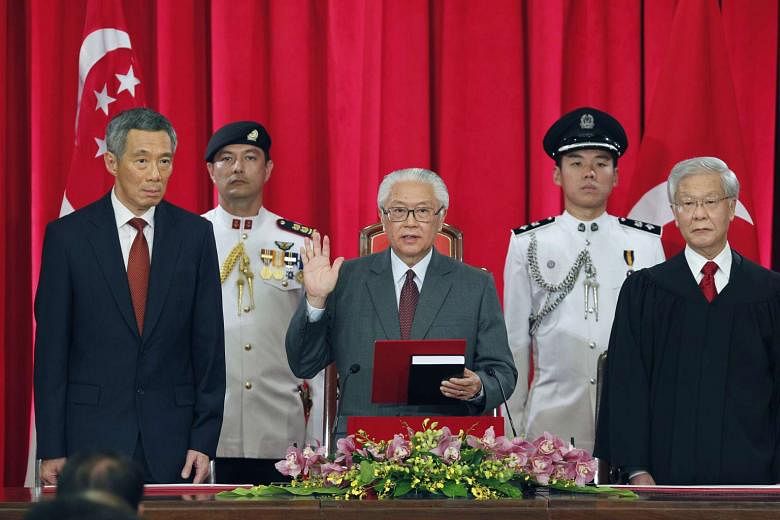The Workers' Party (WP) has reiterated its call for the office of the Elected President (EP) to be abolished.
It cited four reasons for its stance in a submission on Monday to the Constitutional Commission formed to study the Elected Presidency and recommend how it can be updated.
In a statement published on the WP's website on Wednesday, the party argued that the EP undermines parliamentary democracy; could potentially "cripple" a non-People's Action Party (PAP) government in its first term; and could be an unnecessary alternative power centre, and so cause gridlock.
It also said that Parliament is a sufficient safeguard when it comes to protecting the country's reserves.
The WP, in the submission signed by chairman and Aljunied GRC MP Sylvia Lim, said current concerns about the EP "were, largely, the making of the Government itself".
It added: "It is also ironic that the Government has regularly eschewed political systems embroiled in gridlock, yet it is entrenching and exacerbating the potential for real gridlock through the office of the EP and the proposed constitutional changes to the functioning of the office of the EP."
The commission, led by Chief Justice Sundaresh Menon, is reviewing submissions and will hold public hearings over the next two months.
It was appointed by Prime Minister Lee Hsien Loong in February to review aspects of the EP system, which was instituted in 1991.
PM Lee said during the debate on the Presidential Address at the opening of Parliament that the President had to remain elected, but that certain aspects of the process had to be reviewed.
The growth in Singapore's reserves, of which the President is custodian, means that individuals with character as well as competence are needed, he said. Yet another consideration: the need for candidates from minority races to get a chance to be elected from time to time.
The WP said its "strong objections" to the EP have remained unchanged since the 1980s, and that its main concerns remain relevant.
On how the EP undermines the parliamentary system, the WP said the Government's power to govern comes from the popular mandate it receives at general elections.
But the EP, with powers under the Constitution, "fetters the Government in matters which may be critical to the Government's effectiveness" such as in making key civil service appointments and drawing on past reserves should the need arise.
The WP also said that those who qualify to run for the presidency come from an elite group and many are "senior officials appointed under the PAP Government".
Therefore, should an opposition party take over government, the EP could block key appointments and "cripple the new administration", it said, adding: "The EP derogates from and is a blot on Singapore's commitment to democracy."
It added that the Government's suggestion to expand the powers of the Council of Presidential Advisers "may add another layer of gridlock".
The WP also said the EP's veto powers could lead to the President becoming an alternative power centre, especially when the EP and Government do not "see eye to eye".
And while the WP agrees with the need to safeguard the reserves, it said the EP is "not the right mechanism" to do so. "Instead, WP is open to the idea of enacting additional Parliamentary mechanisms to safeguard the reserves," it said.
This could include requiring a super-majority vote in Parliament before past reserves can be unlocked.
It added that government concerns over a lack of a minority President would be nullified "if Singapore were to revert to its former system of appointed, ceremonial Presidents".


